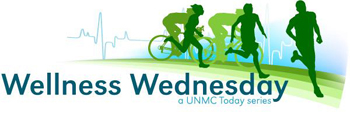Food is a central focus at many holiday gatherings. It is no surprise during this busy time that many cooks take short-cuts. Therefore, the Nebraska Regional Poison Center sees an increase in food-borne illnesses during the holidays.
 The major source of food poisonings is from improper handling, preparation, cooking and storage.
The major source of food poisonings is from improper handling, preparation, cooking and storage.
Here are some tips to make your holidays safe:
- DO keep turkey in its original wrapping, refrigerated until ready to cook.
- DO make sure the sell-by-date has not expired.
- DO defrost a frozen turkey by refrigeration or a cold water bath.
- DO allow one day for every 5 pounds to defrost in the refrigerator. In a cold water bath, change the water every 30 minutes. A 20 pound turkey will take 12 hours to defrost in cold water.
- DO use a meat thermometer to check if turkey is done. The turkey should cook until the internal temperature reaches 180-185 degrees.
- DO pierce the turkey in the thickest area of the thigh, making sure the juices run clear and are not pink.
- DO remove the stuffing immediately after the turkey is cooked.
- DO store the turkey and stuffing separately.
- DO store leftover turkey in the refrigerator and use within 3-4 days.
- DO store leftover stuffing and gravy in the refrigerator and use within 1-2 days.
- DON’T defrost a turkey at room temperature. Bacteria can multiply on outer layers before inner layers have defrosted.
- DON’T leave an uncooked thawed turkey out of the refrigerator longer than two hours.
- DON’T partially cook the turkey one day and continue roasting the next day.
- DON’T stuff the bird the night before cooking.
- DON’T leave leftovers out on the counter longer than three hours.
- DON’T store leftover stuffing in the turkey.
- DON’T re-freeze a thawed uncooked turkey.
The Nebraska Regional Poison Center offers tips on Thanksgiving safety and poison prevention as a free community service. For more information, contact the Nebraska Regional Poison Center at 1-800-222-1222.
Thanks for the reminder!